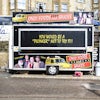Thero Makepe is retracing family ties one image at a time
The photographer blends documentary, staged and archival images to build a complex portrayal of his family history during Apartheid, which is on display as part of the Belfast Photo Festival
Elena Ferrante’s 2013 novel Those Who Leave and Those Who Stay speaks to the divergent paths that people experience depending on whether or not they remain in their hometown – people who had so much in common, until they didn’t.
Back in the real world, several thousand miles away in the altogether different context of Apartheid-era South Africa, the same dichotomy was playing out among photographer Thero Makepe’s elders.
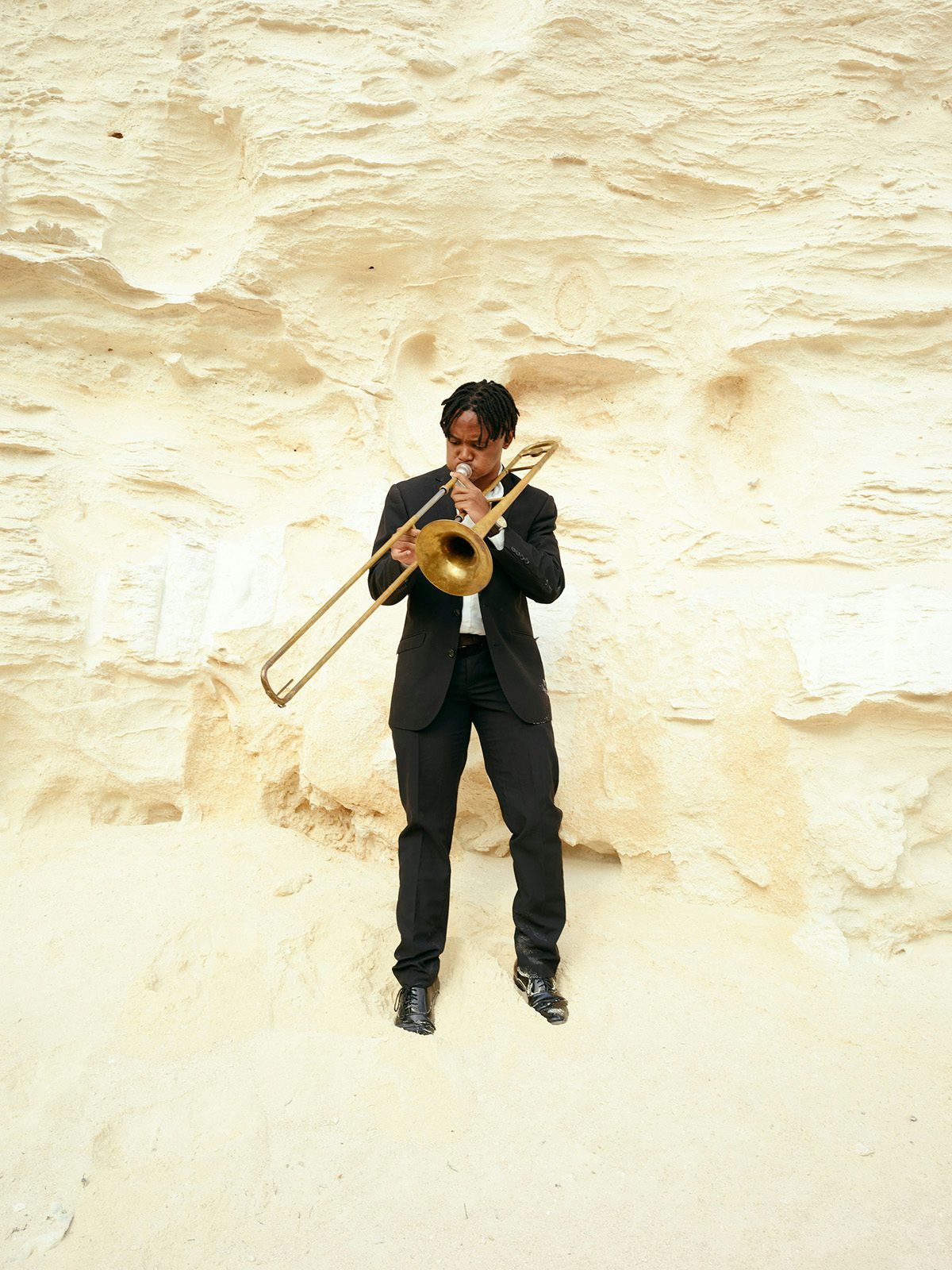
Makepe’s maternal grandfather Hippolytus Mothopeng fled the Apartheid regime in 1958 and resettled in Botswana, where he found work as a clerk and performed jazz as a hobby, and where Makepe himself was born and raised.
Meanwhile Hippolytus’s cousin John Mothopeng remained in South Africa, where he had a career as an influential guitarist and a leader of bands including the seminal jazz group Batsumi. John’s father, Zephania Mothopeng, also stayed behind. A teacher turned prominent activist, Zephania was a “revolutionary leader” in the struggle against Apartheid, for which he was twice imprisoned on Robben Island, Makepe explains.
In his latest body of work, We Didn’t Choose to be Born Here, Makepe explores these alternative life trajectories set in motion by the “diametrically opposed choices” made by his family members more than half a century ago.
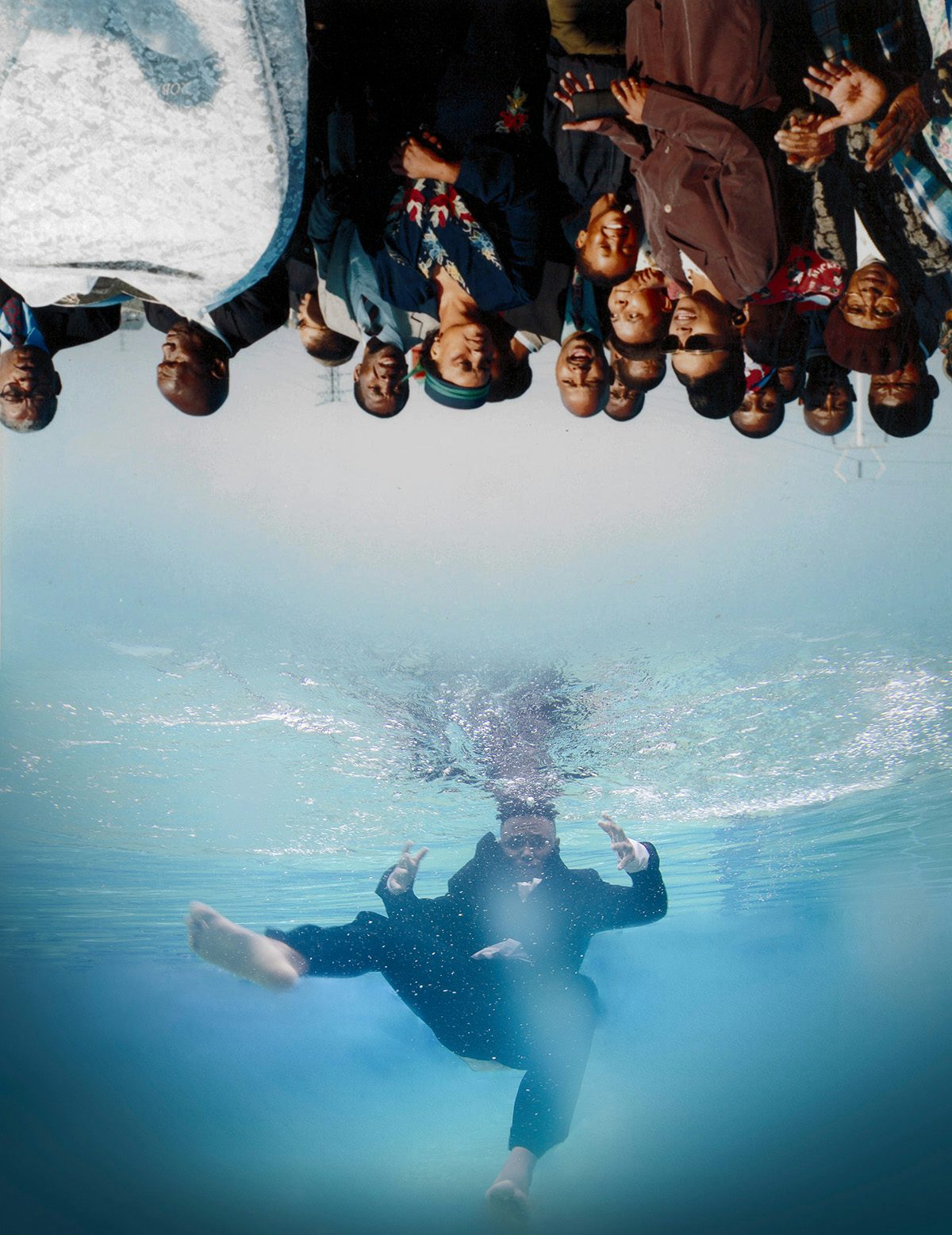
The idea stemmed from his final major project at the Michaelis School of Fine Arts in Cape Town, which centred more squarely on the relationship between him and grandfather. During the process, he began to uncover the twists and turns in his wider family history, which have cascaded down through the family tree to shape the lives around them, including Makepe’s own, all these generations later.
We Didn’t Choose to be Born Here unfolds through a blend of staged and documentary images of his family, who he has been photographing and interviewing since 2020, in both Botswana and South Africa. The distinction between the two kinds of image is never revealed, leaving the viewer constantly questioning whether Makepe is depicting scenes as they really happened or imagining what could have been.
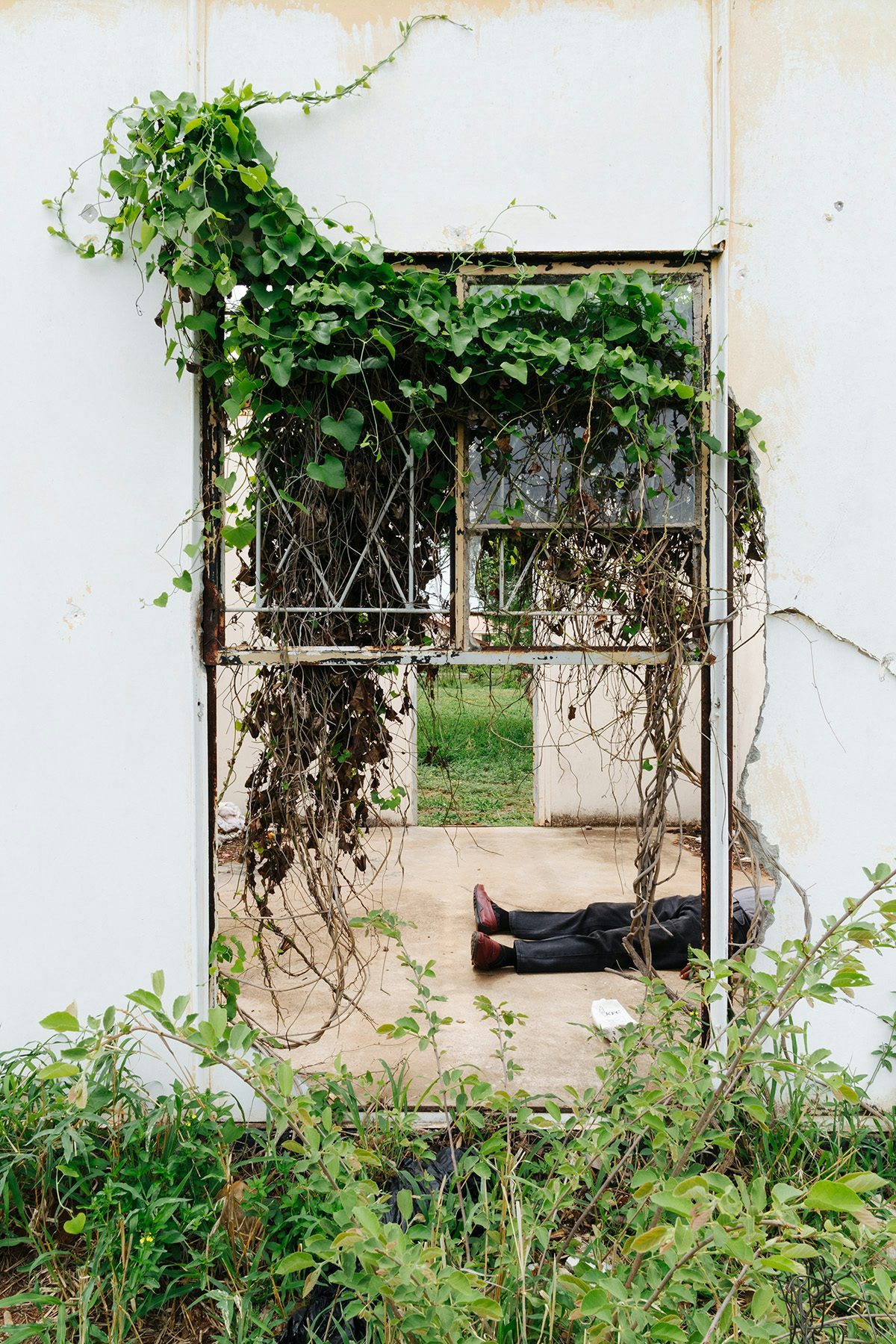
These images are anchored by historic materials, drawing on publicly available artefacts relating to John and Zephania Mothopeng, supplemented by combing through private family archives to trace the stories of less visible relatives.
Creating this body of work has given him a better understanding of the broader history of southern Africa and of his own family within it, as he gently peeled back buried layers of generational memories.
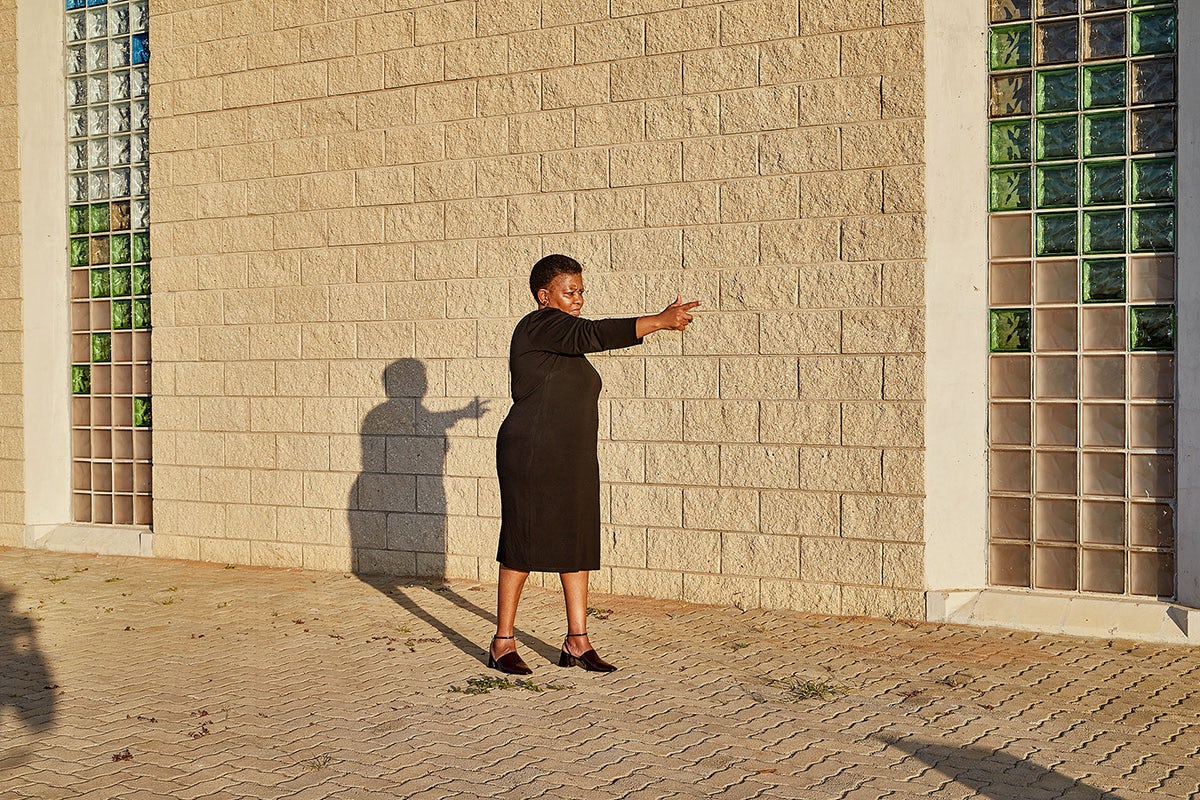
While his family in Botswana were always quite supportive, and have even become appreciative, of his work, his family in South Africa were initially more hesitant, “mainly because our family bonds weren’t as strong in the beginning,” he says. “After my grandfather passed away in 2012, we lost a linchpin who kept the two branches of the family together in Botswana and South Africa, so I had to rebuild those links a bit.
“I also had to be patient because I was doing a very sensitive project that was unpacking a traumatic history. In the end, though, it has definitely helped bring my family together again, and everyone is supportive of what I’m doing,” Makepe explains. “At this point, I work collaboratively with my family, less as a singular author and more as a custodian.”
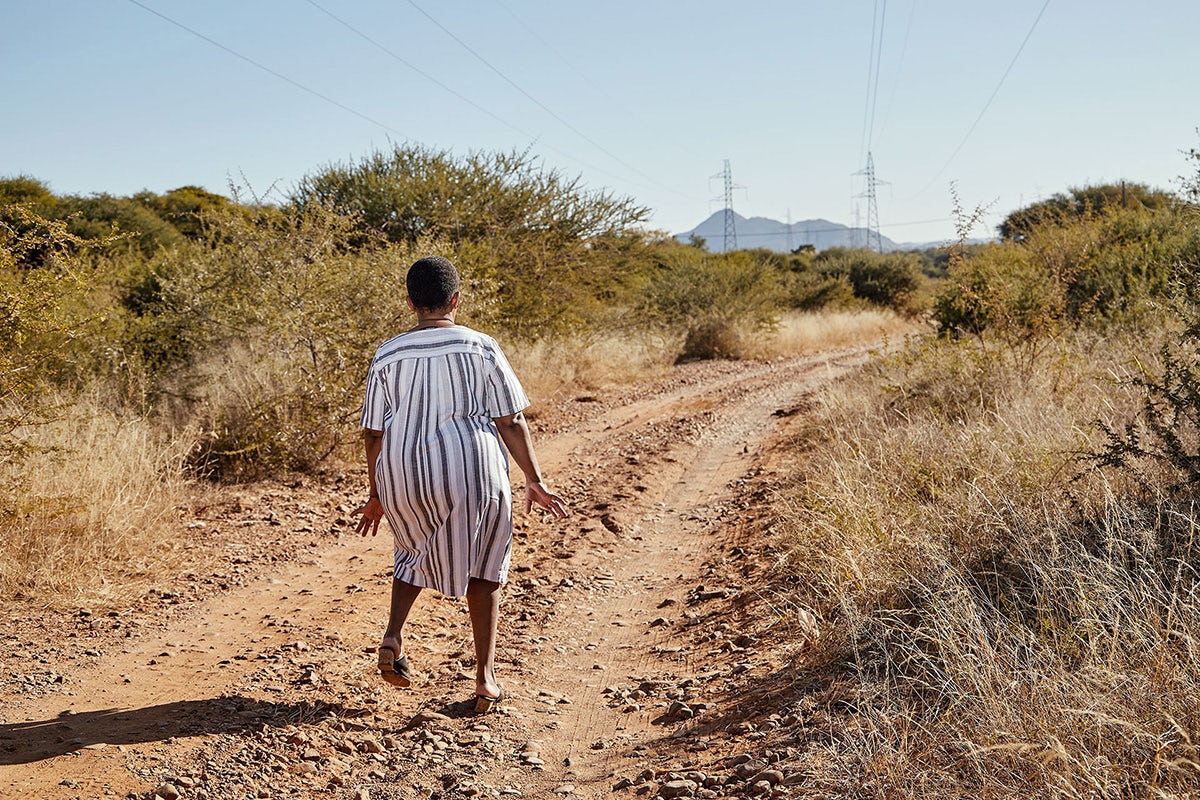
We Didn’t Choose to be Born Here by Thero Makepe is on display at Botanic Gardens, Belfast until June 30; belfastphotofestival.com

